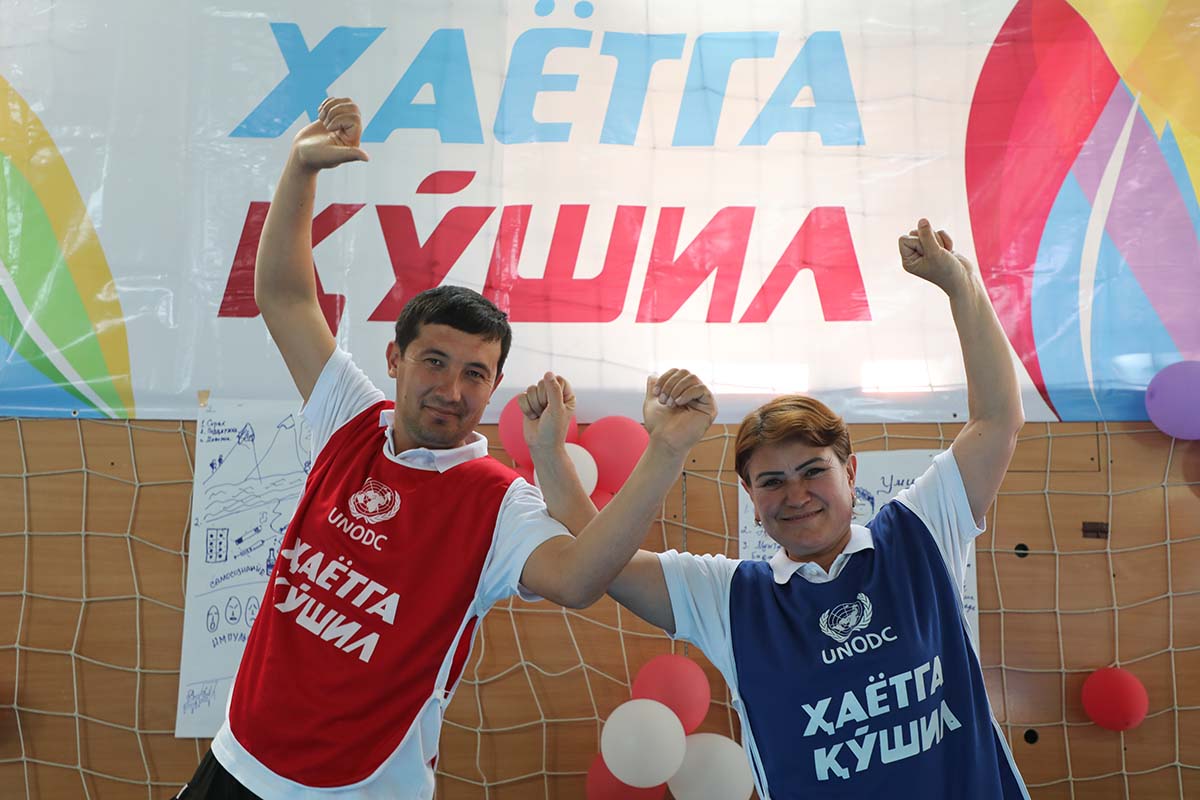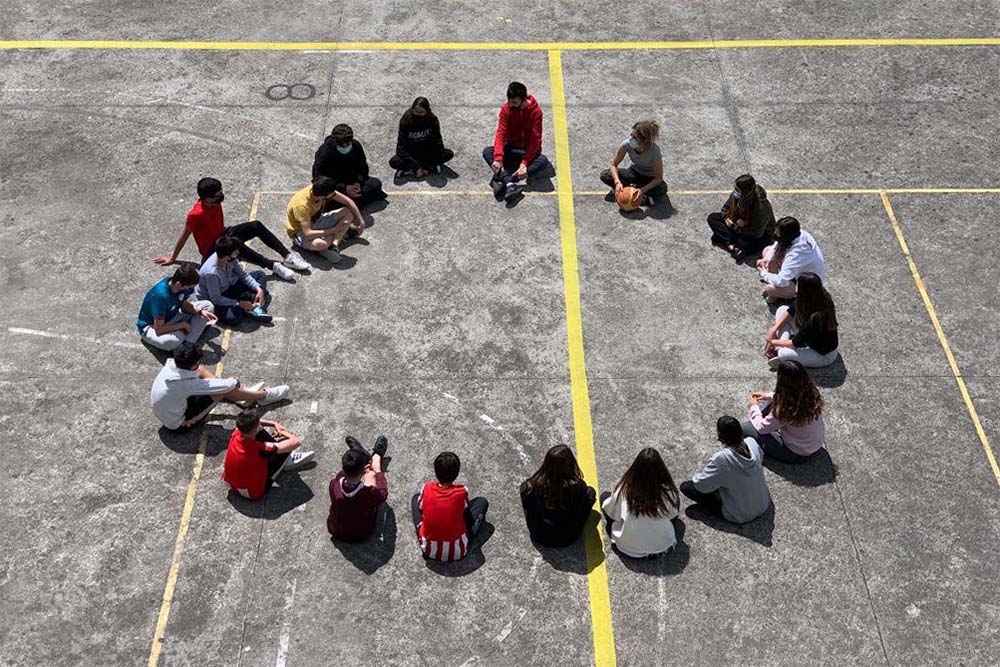Training of sport trainers and physical education teachers on "Line Up Live Up" kicks off in Kyrgyzstan
9 November 2017 - In late-October, UNODC, the Kyrgyz State Agency on Youth, Physical Culture and Sports, and Bishkek City Mayor's Office teamed up to deliver a three-day pilot training-course for sports trainers and physical education school teachers to implement the Line Up Live Up curriculum for at-risk youth.
The training - which was conducted from 24 to 26 October - is part of UNODC's global work aimed at providing teachers with tools that assists them in further delivering sport-oriented trainings on life skills: an integral part of crime prevention among youth.
"As a result of this training, a first group of sports coaches and physical education teachers is now ready to work with youth as part of a pilot roll-out in Bishkek city with support from UNODC, said Koen Marquering, UNODC International Coordinator based in Bishkek.
Mirlan Parhanov, Deputy Director on Youth Policy at the Kyrgyz State Agency on Youth, Physical Culture and Sports emphasized the importance of such training for the youth of Kyrgyzstan. "Thanks to the UNODC training our sports coaches and school teachers will pay more attention to communication and life skills development among young children. I believe this programme should be implemented not only in Bishkek but across Kyrgyzstan."
Some 23 coaches and physical education schoolteachers, selected by the Kyrgyz and Tajik authorities, were trained on the Line Up Live Up methodology through a set of interactive sessions based on a UNODC-developed Trainer Manual.
Co-author of the Trainer Manual, Oihana Rementeria, was present in Bishkek to support the delivery of the Line Up Live Up course in Kyrgyzstan. "The Trainer Manual specifically draws on sport as a positive influence for youth to promote tolerance and respect, develop personal and social skills of young people, and to increase their knowledge about the risks associated with crime, violence and drug use. We hope that this manual can assist coaches, trainers, school teachers and others in Kyrgyzstan looking to use sport as a vehicle to help 13 to 18 year olds to cope with challenges in everyday life."
This approach supports the implementation of the Doha Declaration, adopted at the 13th United Nations Congress on Crime Prevention and Criminal Justice, which stresses youth participation in crime prevention efforts. The tool, which has been developed as part of a resultant Global Programme, is also closely linked with the 2030 Agenda for Sustainable Development which emphasizes the role of sport for social progress and inclusion.
Through the Doha Declaration Global Programme and the UNODC Programme for Central Asia 2015-2019, the organization is committed to assisting Member States in using the power of sport to prevent youth violence and crime.
Additional information:


